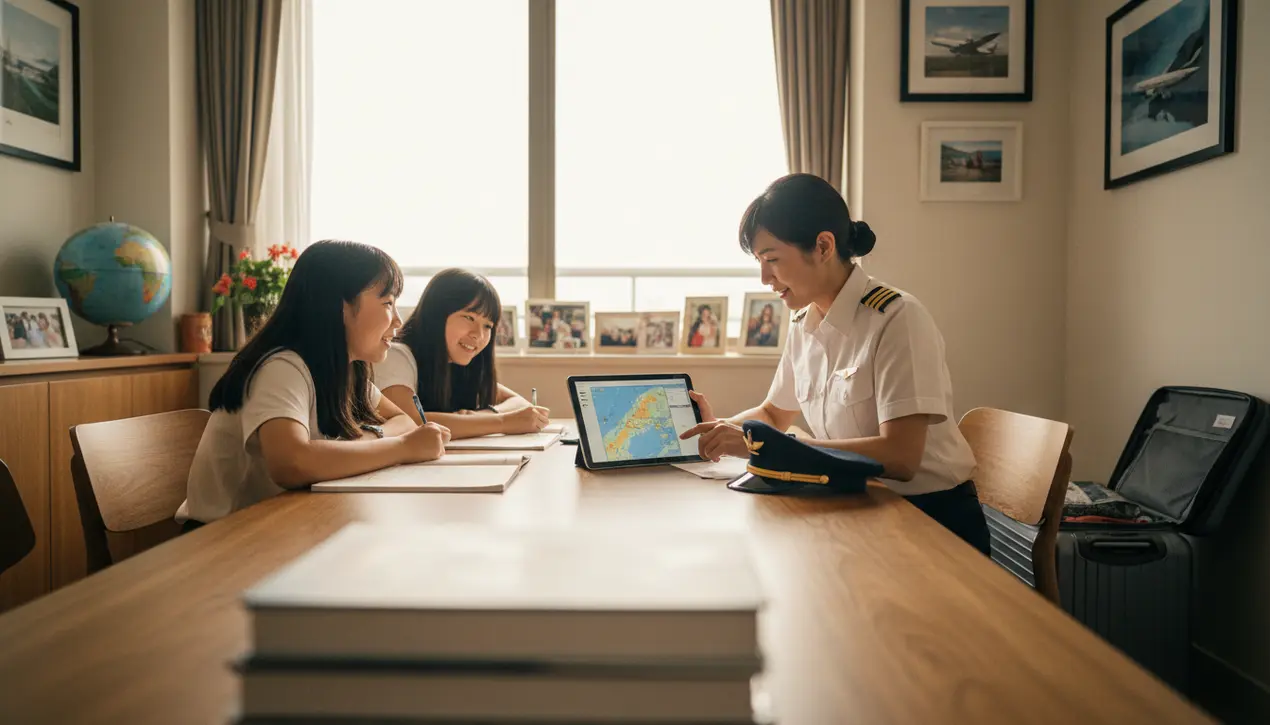
Othertransport & aviationAirlines and Airports
Hong Kong's First Female Cathay Pacific Captain Balances Career and Family.
AN
Anna Wright
16 hours ago7 min read1 comments
Hongkonger Candy Wu Suk-fun has mastered a delicate dual navigation that would challenge even the most seasoned pilot: charting a course through the demanding skies of commercial aviation while simultaneously steering the intimate, unpredictable journey of motherhood. Her regular, unassuming presence at parent-teacher meetings for her two daughters, aged 12 and 15, has led other parents to assume she is a full-time stay-at-home mother—a testament not to deception, but to her meticulous, almost surgical, precision with time management.This facade of domestic permanence belies her true role as a captain with Cathay Pacific Airways, a position where she shattered a significant glass ceiling by becoming the airline’s first home-grown female captain in 2009. Her story is far more than a personal triumph; it is a compelling case study in the ongoing global struggle for gender parity in historically male-dominated professions and the complex social policies that either support or hinder such progress.The narrative of women in aviation is one of persistent, hard-fought ascent. While the image of the dashing male pilot remains stubbornly entrenched in popular culture, pioneers like Wu are systematically rewriting the script.Her achievement in 2009 did not occur in a vacuum; it sits on the shoulders of figures like Amelia Earhart and Britain’s Amy Johnson, yet it highlights how slowly the cockpit demographics have truly changed. Even today, despite incremental gains, female pilots represent a single-digit percentage of the global commercial pilot workforce, a statistic that underscores systemic hurdles ranging from entrenched cultural biases in recruitment to a profound lack of visible role models for young women considering the field.Wu’s candid admission that 'as a mother, it is challenging' speaks volumes about the invisible labour that professional women continue to bear. The challenge isn't merely logistical—the coordination of school runs with international flight schedules—but deeply psychological, involving the constant negotiation of societal expectations.The pressure to be the perpetually present, nurturing figure clashes directly with the absolute, uncompromising demands of a career built on safety, precision, and prolonged absences from home. This is a universal tension felt by ambitious women worldwide, from corporate boardrooms to hospital operating theatres, and it raises critical questions about parental leave structures, corporate support systems, and the equitable distribution of domestic responsibilities.From a policy perspective, Wu’s success story invites a critical examination of the support infrastructure in Hong Kong and beyond. Does the flag carrier, and the broader aviation industry, provide adequate, flexible parental policies that acknowledge the primary caregiving roles still disproportionately shouldered by women? Are there mentorship programs designed not just to recruit women into aviation, but to actively retain them through the pivotal years of family formation? The personal resilience Wu demonstrates is admirable, but it should not be the sole solution; structural change is imperative.Her ability to 'juggle' so effectively should be seen not as an individual superpower, but as a benchmark for the kind of professional environment that all companies should strive to create—one where career ambition and familial devotion are not mutually exclusive pursuits but are integrated into a sustainable, supported whole. In this light, Captain Wu is more than a pilot; she is a navigator charting a course for a more equitable future, her trajectory a powerful signal to her daughters and countless others that the sky is not the limit, but the destination.
#featured
#Cathay Pacific
#female pilot
#motherhood
#work-life balance
#aviation career
#Hong Kong
#role model
Stay Informed. Act Smarter.
Get weekly highlights, major headlines, and expert insights — then put your knowledge to work in our live prediction markets.
Comments
Loading comments...
© 2025 Outpoll Service LTD. All rights reserved.